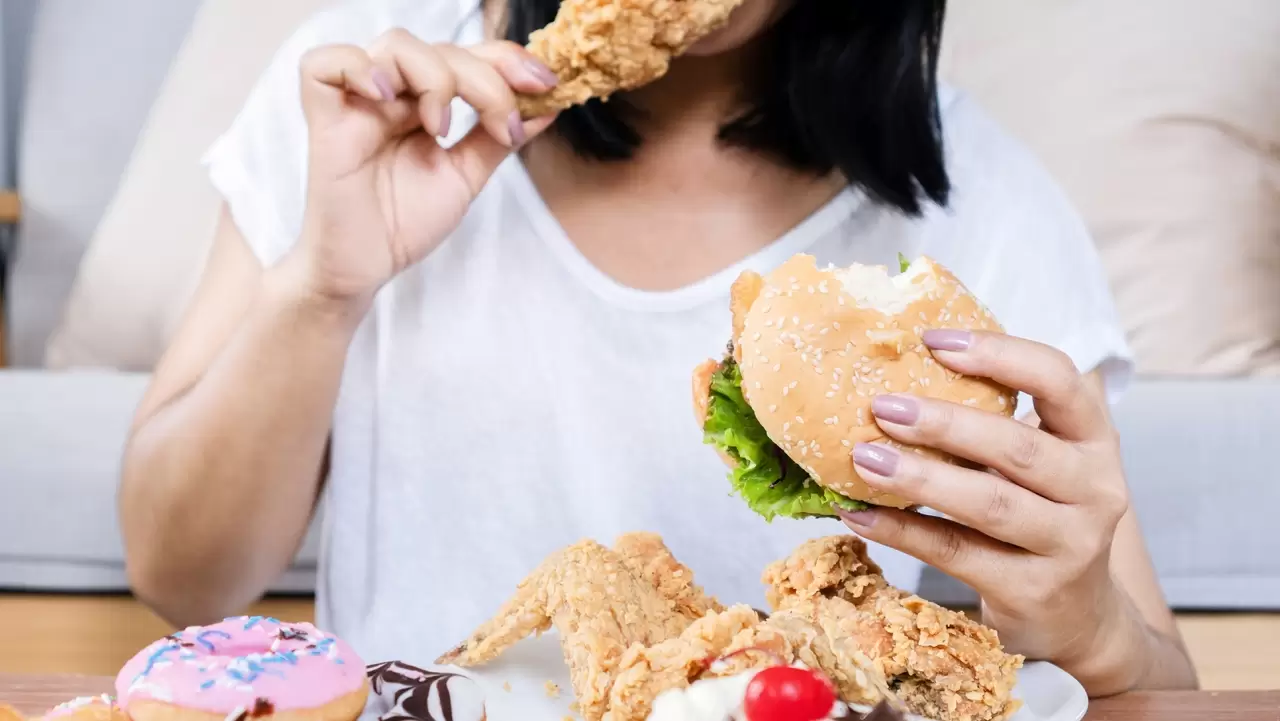
Feel an uncontrollable urge to eat coming on? These tips may help.
An eating binge is characterized by consuming an unusually large amount of food in a short period of time and feeling unable to stop. Some people may do this on occasion when tempted by certain foods, spurred by specific emotions or while in particular environments. For others, eating binges occur relatively often. If this occurs, you may be diagnosed with binge eating disorder.
Whether your experience with binge eating is only occasional or you are trying to manage binge eating disorder, there are steps you can take to help stop a binge in its tracks. It may not always feel like you can stop this from happening because binging implies that you feel out of control, but with a bit of practice and determination, it is possible.
Here are 7 tips to help stop a binge in its tracks:
- Become more mindful. When we binge, we often lose focus on what we’re even eating or how we’re feeling. Instead, try to become more mindful of every bite you put in your mouth. What does it taste like? Is it chewy or crunchy? Is it sweet or salty? How does it make you feel?
- Slow it down. If you can find ways to slow down the pace of your eating, you’re more likely to stop a binge in its tracks. Take time to chew thoroughly and stop between bites. That may be hard to do, but by slowing things down, you’ll start to feel like you’re regaining control.
- Distract yourself. Feel a binge coming on? Find ways to distract yourself so you’re not constantly thinking about food or reduce the chance of binging by getting away from food. It’s best to make a list of alternative activities you can do ahead of time so you’re prepared when you need it.
- Don’t keep triggers at home. Many people who have eating binges find there are certain foods that trigger these episodes. It’s best to keep trigger foods out of your house. You can still enjoy these foods on occasion, but eat them out, where they’re less likely to start a binge.
- Identify your emotions. Just as certain foods trigger a binge, so do certain emotions. If you’re more likely to binge when you are angry, sad or bored, find other ways to manage those emotions. Call a friend, write in a journal or yell into a pillow.
- Eat regularly. If you go too long without eating, you’re more likely to feel out of control and to binge because you’re so hungry. Eating regularly helps give you more power over controlling a binge because you are not feeling like your body needs fuel fast.
- Get help if you need it. Some people find that tips such as these work in helping them to stop binge eating, but other people benefit from professional help. Working with a therapist will help you identify triggers and emotions that cause you to binge and can also help you develop strategies for managing your feelings and behavior.
Copyright 2023 © Baldwin Publishing, Inc. Health eCooks® is a registered trademark of Baldwin Publishing, Inc. Cook eKitchen™ is a designated trademark of Baldwin Publishing, Inc. Any duplication or distribution of the information contained herein without the express approval of Baldwin Publishing, Inc. is strictly prohibited.
Date Last Reviewed: October 12, 2023
Editorial Review: Andrea Cohen, Editorial Director, Baldwin Publishing, Inc. Contact Editor
Medical Review: Jane Schwartz, RDN, CLT
Learn more about Baldwin Publishing Inc. editorial policy, privacy policy, ADA compliance and sponsorship policy.
No information provided by Baldwin Publishing, Inc. in any article is a substitute for medical advice or treatment for any medical condition. Baldwin Publishing, Inc. strongly suggests that you use this information in consultation with your doctor or other health professional. Use or viewing of any Baldwin Publishing, Inc. article signifies your understanding and agreement to the disclaimer and acceptance of these terms of use.